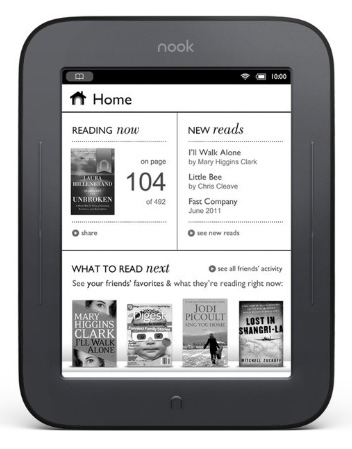E-reader battery life spat part of larger issue with footnotes, assumptions

Barnes & Noble on Tuesday made claims of two month battery life for its baby Nook. Amazon overnight changed its battery life claims to match. Kobo's CEO also wasn't thrilled with Barnes & Noble's battery life claims either.

In any case, no one looks good. Amazon matches Barnes & Noble's criteria and instinctively folks think something is fishy. Going through Barnes & Noble's press release you'll also find that there are no footnotes to its battery life claims. Barnes & Noble's press kit was also devoid of footnotes to back its battery life claims.
Barnes & Noble failed to footnote its assumptions and frankly that's pretty weak. In fact, Amazon needs a new footnote lesson too. Its press release touting its Kindle with Special Offers 3G device claims up to two months battery life. All that is missing is the footnote to explain how it got to that claim.
And that lack of footnotes is a big problem. Let's face it. Few of us read footnotes, but as a guy who spends a lot of time on earnings reports and regulatory filings the asterisks matter a lot. You can't make up numbers without footnotes.
Maybe e-reader manufacturers are a bit immature relative to the rest of the tech industry, but whenever you see any battery life claim your eyes should jump to the footnotes. Why? You need to know the assumptions companies are making. Barnes & Noble gets twice the battery life from half the usage. Big whoop.
Certainly, the e-reader industry has intense competition, but so do PC makers. And the PC guys seem to get the footnotes right.
Here's an example of how the footnote game works. Lenovo announced its thinnest laptop with the best performance in its class.
May 17, 2011: Lenovo (HKSE: 992) (ADR: LNVGY) announced today the ThinkPad X1 laptop that gives users the thinnest and highest performance combination for its class*.
The entire press release has little numbers by claims. Lenovo goes on to make battery life claims for its ThinkPad X1.
At the bottom you get footnotes that look like this:
1. Compared to major vendors offering 13-inch widescreen enterprise laptop PCs: HP, Dell, Fujitsu, Toshiba, Samsung. Enterprise laptops offer stable images, security and manageability features, global models and global support. 2. To reach 80% charge level. 3. Typical ThinkPad X1 battery expected to maintain up to 80% charge after 1,000 charge cycles. Battery life and charge cycles vary by use. Typical X1 battery retains over 60% of original capacity after 3 years based on 250 cycles per year assumption. Lenovo offers a standard one-year Limited Warranty on the battery and the optional upgrade to a ThinkPlus® 3-Year Sealed Battery Warranty. 4. 10 hours of battery life with integrated 4-cell and external slice 6-cell battery measured. 5. On select models with Intel Core i5 and i7 processors. 6. Prices do not include tax or shipping and are subject to change without notice and is tied to specific terms and conditions. Reseller prices may vary. Price does not include all advertised features. All offers subject to availability. Lenovo reserves the right to alter product offerings and specifications at any time without notice.
Now you may ultimately conclude that Lenovo is full of dookie based on those assumptions. But at least you have the information to make a call.
All PC makers have footnotes. The semiconductor companies are also footnote happy---although I defy any of you to explain what they mean to me in plain English.
Nevertheless, the e-reader industry needs to get on the footnote bandwagon pronto.